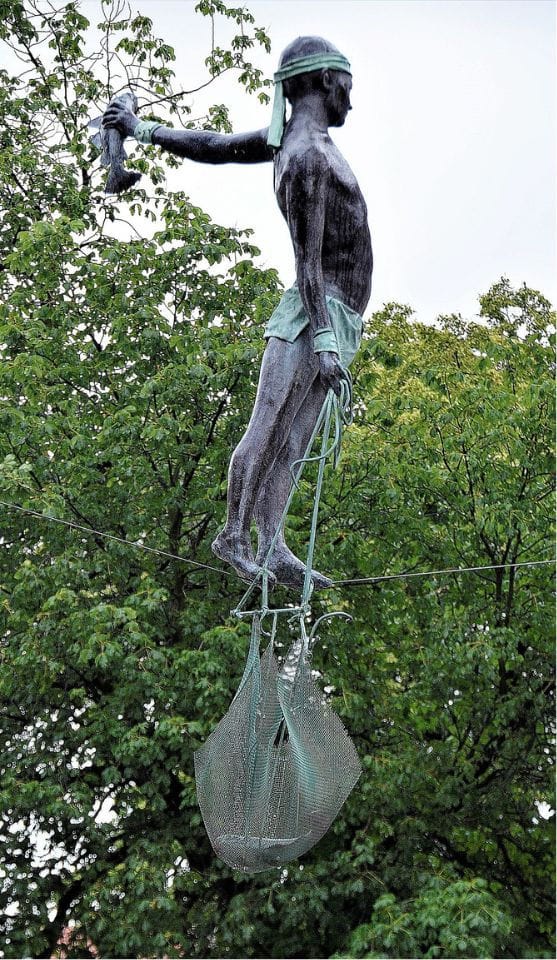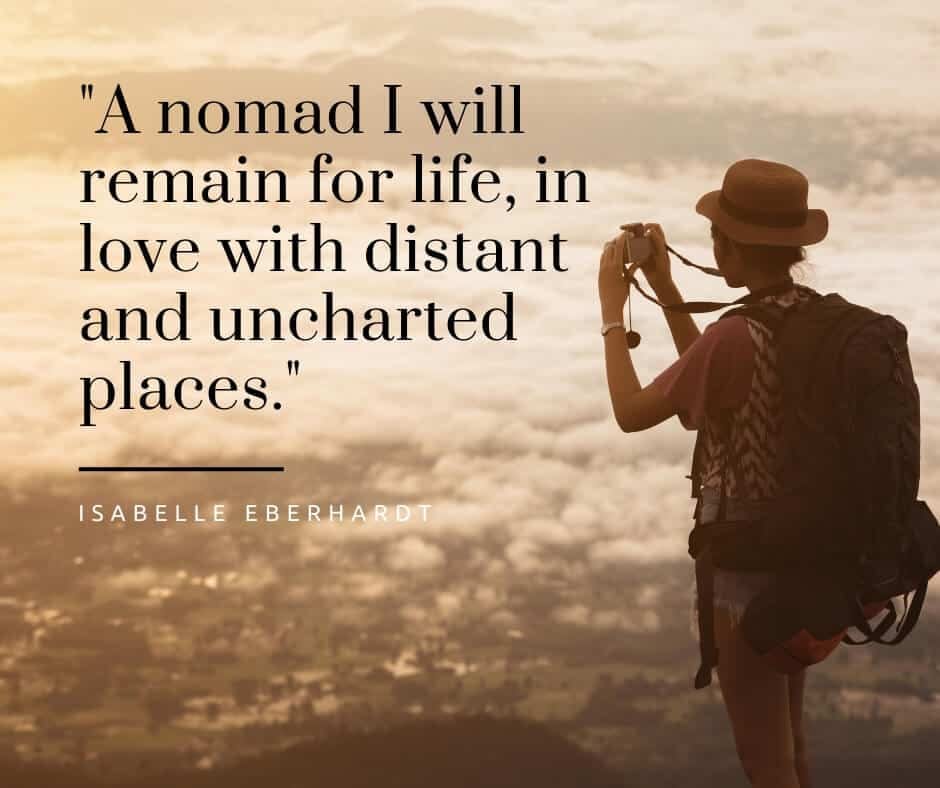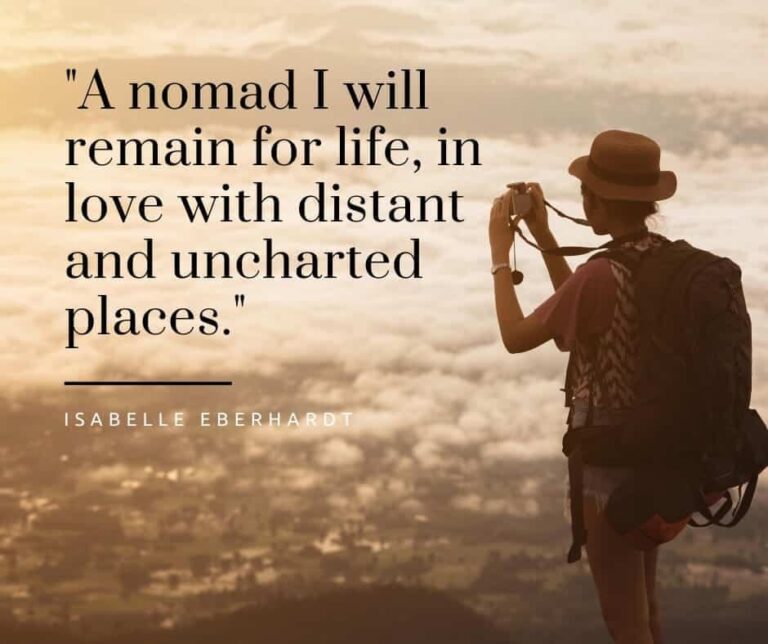As a digital nomad, understanding local cultural norms of the places you visit is essential. Different countries have different customs, and what may be acceptable in one place could be considered rude or inappropriate in another. It is vital to respect the local culture and avoid cultural faux pas to avoid offending locals and damaging relationships. This is always an important aspect of traveling as a respectful digital nomadess; however, in some countries, it is more important than others. Let’s not forget in some places stoning to death still occurs!
Research the Local Customs Before Travel.
Before traveling to a new country, digital nomadesses should research the local customs and social norms. This will help you avoid cultural misunderstandings and ensure you respect the local culture. It is also a good idea to learn a few basic phrases in the local language, such as “hello,” “thank you,” and “goodbye,” to show respect and appreciation for the local culture.
Digital nomads should also be aware of non-verbal communication, such as gestures and body language, which can vary widely between cultures. For example, in some cultures, direct eye contact is a sign of respect; in others, it may be seen as aggressive or confrontational. By being mindful of these differences, digital nomads can avoid misunderstandings and build positive relationships with locals.
A great example of Understanding Local Cultural Norms is Direct Eye contact.
There are cultural variations regarding direct eye contact and its interpretation. While direct eye contact is generally considered a sign of attentiveness, respect, and engagement in many Western cultures, it is important to recognize that norms regarding eye contact can vary across different regions and cultural contexts.
In some cultures, avoiding or limiting direct eye contact may be seen as a sign of respect or modesty rather than disrespect. Here are a few examples:
Direct Eye Content Norms
- East Asian Cultures: In some East Asian cultures, such as Japan, China, and Korea, prolonged direct eye contact may be viewed as impolite or confrontational, especially when speaking with someone of higher social status or authority. Instead, individuals may show respect by averting their gaze slightly or looking down.
- Indigenous Cultures: In certain Indigenous cultures, particularly those that emphasize communal values and respect for elders, maintaining direct eye contact with an elder or a person of higher status may be considered disrespectful. Showing respect by lowering one’s gaze or using indirect eye contact during conversations is common.
- Middle Eastern and South Asian Cultures: In some Middle Eastern and South Asian cultures, maintaining prolonged direct eye contact, particularly between unrelated individuals of the opposite gender, can be seen as inappropriate or immodest. Modesty and privacy considerations may influence the degree of eye contact observed in these contexts.
It is essential to approach eye contact norms with cultural sensitivity and respect. Observing and adapting to their nonverbal cues and social norms regarding eye contact is beneficial when interacting with individuals from different cultures. Awareness of and responsiveness to cultural differences can help foster effective communication and avoid unintentional disrespect.
The Consequences of Perceived Disrespect.
It’s just tougher to get anything done. Everyday life is easier when you don’t get people’s backs up. Don’t get me wrong, as a digital nomadess, it will always happen at some point, it is inevitable, but it does not have to happen every time. Let me give you a real-life example. Before Microsoft and the Internet, I bought a restaurant in the early eighties in Spain. My parents and brother both lived in the province of Malaga, Andalucia.
Unexpected Consequences.
One day my brother, Paul, volunteered to assist me in getting some legal papers. My Spanish was basic, what you could call barroom Spanish. In other words, I knew just about enough to order a beer and knew not to swear in a language you were not fluent in (Or so I thought). Anyway, I said in my best respectful Spanish, “Medame una cerveza, por favor,” or Please give me a beer in the vernacular.
I didn’t notice how my brother ordered his beer, but when my beer came, the barman more or less threw it to me across the counter at me. It only just remained upright, but the look indicated the barman would have preferred it had the beer fallen all over me. I sighed deeply and glumly grabbed my beer.
My baby brother, six years younger than me, calmly asked if I wanted to know what happened there. A certain sense of smugness in the question implied he was smarter than me. However, at the time, I was in my late twenties and old enough not to take the moral high ground. Also, I was pissed off by having my beer perilously thrown at me.
Confusion Reigns
Paul asked me if I always ordered a drink like that, and I replied I did. He said that would be why the waiter looked at you like looks would kill. I still don’t get it, I lamented. I was a bookworm, and Paul was a people person. Paul asked me whether I knew how Franco treated Malaga in the civil war. I laughed and said, of course, and I knew that Franco did everything he could to suppress the Basque country and Malaga, the two big areas of Spain he couldn’t conquer. To be fair, I was gobsmacked Paul even knew a Civil war had happened.
Paul said to me that is why Malaga is a communist province. To be fair, that was as clear as mud to me. I still had to ask my brother, whom I don’t think had ever picked up a book in his life :-
“What the hell has that got to do with my beer?
At this point, I got a proper explanation that made sense to me. He said that the Los Malagueños, or the people of Malaga, hated Franco. Franco died in 1975, and at this point, it was less than ten years after his death. Franco’s policies were to the far right of Genghis Khan. Consequently, the defiant people of Malaga had swung to the far left.
As far as the barman was concerned, my English ultra politeness wasn’t interpreted as politeness but extreme rudeness. By saying “please,” I had just said to him
” I am better than you and I am reminding you, that you are a piece of shit, underneath my shoe!”
Catherine Ford 1984 idiot extroidinere
Moral of the story
What I said wasn’t what the waiter heard. Paul told me to go to the bar again and shout casually, “Give me two beers.” Nothing more, nothing less. Not only did the waiter smile at me, but he brought them over to the table as well. I learned a lot that day, not least because I was so caught up in the story that I had overlooked that learning a language takes more than just memorizing phrases. It involves an understanding of gestures and nuances. In other words, I needed to read the room.
Researching Local Customs Before Travel.
1. Researchers can start by looking online and reading travel guides. There are also expat communities and forums where one can ask for advice and tips. Researchers can use Facebook and Instagram to connect with locals and other digital nomads.
2. When researching, it is essential to consider factors such as visa requirements, passport validity, and immigration policies. Digital nomads from the US, EU, UK, and Australia may have different visa requirements depending on their destination. It is also important to remember any COVID-related restrictions and regulations that may be in place.
3. Don’t assume that because Covid has been forgotten or disregarded where you live, this is the case worldwide. Not to mention that 2020 was a dummy run. Researching what happened then indicates what will happen in the next pandemic.
4. Geoarbitrage is a popular strategy among digital nomads, where they choose to live in countries with a lower cost of living. When researching destinations for geoarbitrage, it is crucial to consider factors such as the local economy, job opportunities, and living expenses.


“Culture is the bedrock, the final wall, against which one leans one’s back in a godforsaken chaos”.
J.C.Powys
Adapting to Local Cultural Norms
As a digital nomad, understanding Local Cultural Norms and adapting to them helps to avoid culture shock and to show respect to local communities. Adapting to local customs and traditions can help create meaningful connections with locals and make the stay more enjoyable. Here are some tips for adapting to local cultural norms.
Understanding Local Cultural Norms may just be local customs and traditions
Understanding local customs and traditions is crucial to adapting to local cultural norms. Observing and learning from locals can help digital nomads understand the cultural norms and avoid offending anyone. For example, in some cultures, it is customary to remove shoes before entering a home or place of worship. In other cultures, greeting people with a kiss on the cheek is customary. In Spain, it’s two cheeks, and in Belgium, three! Learning these customs and traditions can help digital nomads avoid misunderstandings and show respect for the local culture.
Learn A few Words in the Local Language
Learning the local language is an excellent way to show respect for the local culture and community. Even learning a few phrases can go a long way in creating connections with locals. Digital nomads can take language classes or use language apps to learn the basics. Using the local language can also help digital nomads navigate the city and find hidden gems that they may not have discovered otherwise.
Showing Respect to Local Communities
Showing respect to local communities is essential for digital nomads. Open mindedness makes it easier for you to rub along with the local communities. Having an open heart makes it easier for the local community to accept you. For example, dressing modestly in conservative cultures can show respect to the local community. Additionally, respecting local customs and traditions can help digital nomads avoid offending anyone and create a positive reputation within the community.
Building Relationships and Community
Building relationships and community is essential to understanding local cultural norms as a digital nomad. It can be difficult to navigate a new culture alone, so connecting with others who can offer guidance and support is important. Here are a few tips for building relationships and community as a digital nomad:
Utilize Social Media
Social media platforms like Facebook groups, Instagram, and Twitter can be great resources for connecting with other digital nomads and locals. Joining local groups and following local influencers can provide valuable insight into the culture and community. It’s also a great way to find events and meetups in the area.
Attend Local Events
Attending local events is a great way to meet new people and learn about the culture. Whether it’s a festival, concert, or community gathering, events provide an opportunity to connect with locals and other digital nomads. It’s also a chance to try new foods and experience local traditions.
Connect with International People
Connecting with other international people can provide a sense of familiarity and comfort in a new place. It’s also a great way to learn about other cultures and make new friends. Hostels, co-working spaces, and digital nomad communities are great places to meet other international people.
Build Relationships with Local Residents
Building relationships with local residents is key to understanding and respecting local cultural norms. It’s important to approach locals with an open mind and a willingness to learn. Learning the language and customs can go a long way in building relationships and gaining a deeper understanding of the culture.
Building relationships and community is essential to understanding local cultural norms as a digital nomad. Utilizing social media, attending local events, connecting with international people, and building relationships with local residents are all great ways to build a sense of community and gain a deeper understanding of the culture.
Dealing with Potential Challenges
As a digital nomad, it is important to be aware of the potential challenges that may arise when navigating local cultural norms. Failure to understand and respect local customs can result in misunderstandings, disruptions, and even culture shock. Here are some potential challenges and tips for dealing with them:
Disruptions to Routine
When working in a new culture, it is important to be aware of potential disruptions that may arise. For example, in some cultures, taking a long lunch break in the middle of the day is customary, while in others, people may work late into the night. It is important to be flexible and adapt to local customs to avoid disrupting the local work culture. This may require adjusting your work schedule or taking breaks at different times than you are used to.
Burnout
Digital nomads often work long hours and may struggle to find a work-life balance. This can lead to burnout, which cultural differences can exacerbate. For example, it is common in some cultures to work long hours and prioritize work over personal life. Digital nomads should prioritize self-care and set boundaries around their work schedules to avoid burnout. This may require saying no to work requests outside of regular business hours or taking regular breaks throughout the day.
Culture Shock
Culture shock can be a common experience for digital nomads who are working in a new culture. This can manifest as feelings of disorientation, frustration, and even homesickness. To avoid culture shock, being open-minded and willing to learn about local customs and traditions is important. This may require seeking out local resources, such as language classes or cultural events, and connecting with other expats who can offer support and advice.
Overall, navigating local cultural norms as a digital nomad can be challenging and an opportunity to learn and grow. By being aware of potential challenges and taking steps to adapt to local customs, digital nomads can thrive in new environments and build meaningful connections with people from different cultures.
Understanding Local Cultural Norms Conclusion
As a digital nomad, it is essential to understand and respect the cultural norms of the places you visit. Ignoring or violating cultural norms can lead to misunderstandings, offense, and even legal trouble. To understand cultural norms, digital nomads should do their research before traveling to a new country. They can read books, watch videos, and talk to locals to gain insights into the country’s culture, customs, and etiquette. Digital nomads should also know that cultural norms can differ between regions and even within the same country. It is also important for digital nomads to be aware of their impact on the local community. They should strive to make meaningful contributions to the places they visit, such as volunteering, supporting local businesses, and respecting the environment. By doing so, digital nomads can build positive relationships with locals and positively impact the places they visit.
Frequently Asked Questions
How can I research local cultural norms before arriving at a new destination?
Researching local cultural norms is crucial for digital nomads who want to avoid offending locals. Before arriving at a new destination, digital nomads can use online resources, such as travel blogs and forums, to learn about the local culture. They can also contact locals on social media or language exchange websites to ask questions about cultural norms.
What are some common cultural norms that digital nomads should be aware of?
Digital nomads should know cultural norms around dress, communication, and social behavior. For example, in some cultures, it is considered disrespectful to show too much skin, while in others, speaking too loudly in public is considered rude. Digital nomads should also know local greetings, gift-giving, and dining etiquette customs. In countries like Sri Lanka, where the religion is Buddhist, they regard women who drink in public as the lowest of the low. Yes, it is a double standard; women drink at home, or at least the Christians do, but they never frequent bars. Yes, this was the case on my last visit in 2016, and yes, I drank in bars, but I only ever had a single beer. I would never have wanted to be seen going home inebriated.
How can I respectfully interact with locals while still maintaining my digital nomad lifestyle?
Digital nomads can respectfully interact with locals by learning a few key phrases in the local language and showing an interest in the local culture. They can also participate in local events and festivals and support local businesses. However, it is important for digital nomads to maintain boundaries and respect their needs.
What are some tips for adapting to new cultural norms as a digital nomad?
Digital nomads can adapt to new cultural norms by observing and learning from locals, asking questions, and being open-minded. They should also be willing to adjust their behavior and expectations to fit in with the local culture. However, it is important for digital nomads to maintain their own cultural identity and values.
Are there any cultural norms that digital nomads should avoid breaking?
Digital nomads should avoid breaking cultural norms around religion, politics, and social hierarchy. They should also be aware of local laws and regulations and avoid engaging in activities that are illegal or frowned upon in the local culture. Not every country has a democratic legal system so understanding local cultural norms is imperative.
How can I balance my own cultural values with those of the local community as a digital nomad?
Digital nomads can balance their own cultural values with those of the local community by being respectful and open-minded. They should also be willing to compromise and adapt their behavior when necessary. However, they should also maintain their cultural identity and values and not compromise their beliefs or values.
To succeed in business, you must be prepared to ask for help. As innovative a trailblazer you may be, chances are that those who have come before you could share a helpful tip or two. Invest time in relationships with mentors and other business owners. Be proactive in asking for—and offering—help, insights, and advice when needed. You’re going to need other people’s help all along the way. Get comfortable asking for it now. One of the best communities I know of to get help with an online business is Wealthy Affiliate. I have been a member since 2007 and mentor many people. Click on the link, create a free account, and let me mentor you.














Learning about the culture before visiting is a must. And this isn’t just if you are traveling international. Being from Hawaii, although a state of the US, it’s different there compared to the mainland. When we are visiting, we must always be mindful that we are just that… a visitor.
A great point Robert, I hadn’t even considered Understanding Local Cultural Norms within a country. LOL Europe is so much smaller